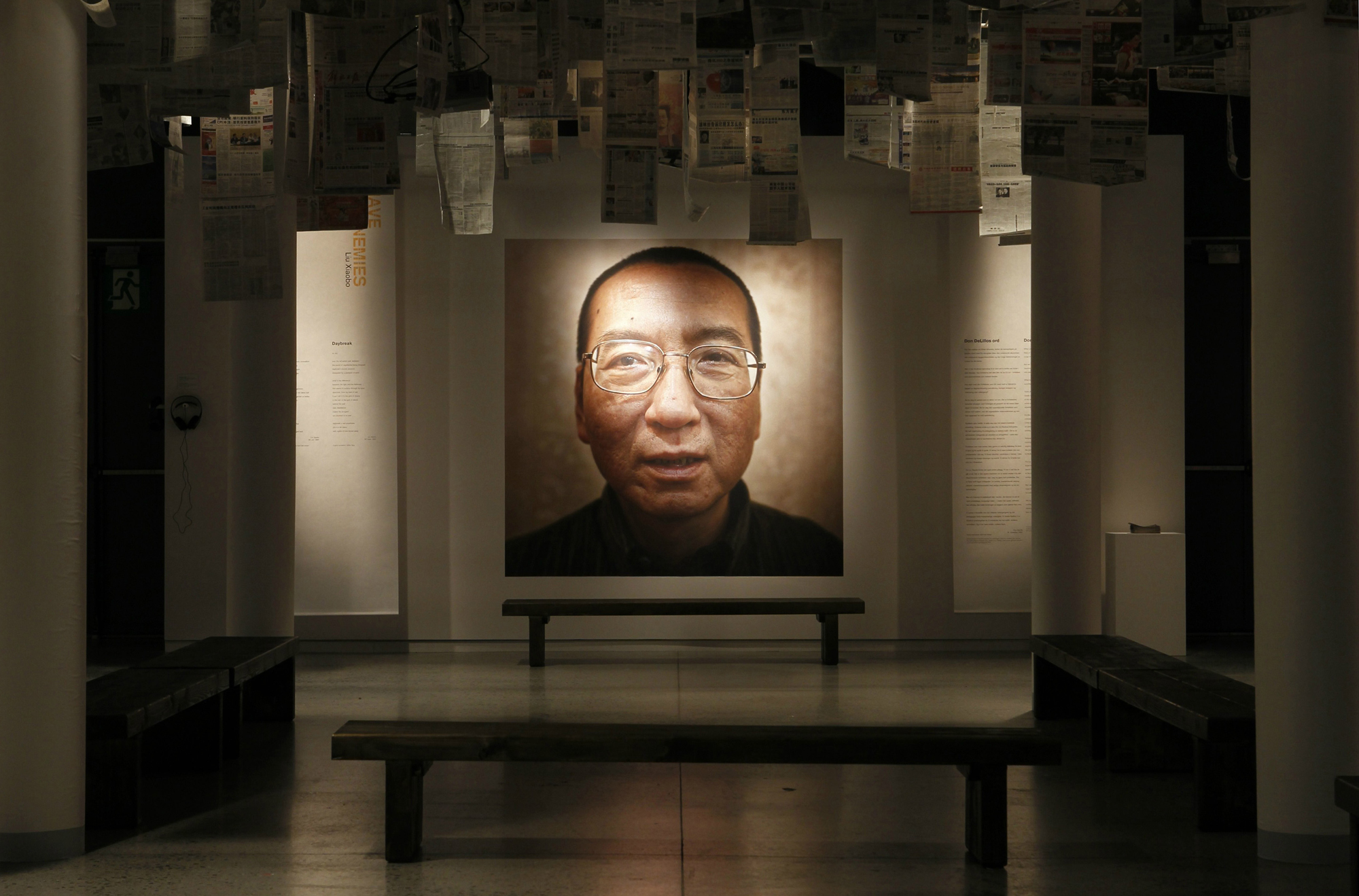
Alert the post office. The official address for the Chinese embassy in Washington may well be changed to 1 Liu Xiaobo Plaza. On June 24, the House Appropriations Committee voted to rename 3505 International Place, a strip of asphalt that runs in front of the Chinese mission in northwest D.C., after the jailed Chinese Nobel Peace Prize laureate.
In 2009, the veteran activist and writer was sentenced to 11 years in prison for inciting subversion against the Chinese state. Liu, 58, helped draft Charter 08, a pro-democracy petition that called on Beijing to abandon one-party rule and uphold basic human rights. A Chinese Foreign Ministry spokesman in Beijing labeled the road-renaming movement a “provocative action,” noting that Liu “has been convicted in accordance with the law.”
The bid for the new Chinese embassy mailing address was tacked on as an amendment to the 2015 State Department spending bill. The road in front of the Chinese embassy is federally owned, giving Congress some latitude in deciding its fate. (The D.C. Council will also consider the resolution.) Fourteen bipartisan Congressmen, led by Virginia Republican Frank Wolf, shepherded the provision, which calls for U.S. Secretary of State John Kerry to institute the name change. A street sign adorned with Liu’s name is planned.
This wasn’t the first time that Congress has used street signs to make a political point. In 1984, the stretch of road in front of the Soviet embassy was renamed after dissident Andrei Sakharov. A few years later, New York City managed to christen a street corner near the then Apartheid-era South African consulate after Nelson and Winnie Mandela.
Liu has served various stints in jail and labor camps or under house arrest. He was locked up for his role in the 1989 pro-democracy protests, which were brutally crushed by the military on the evening of June 3 into June 4 and beyond. This spring, in the run-up to the 25th anniversary of the Tiananmen massacre, the Chinese government detained dozens of activists, lawyers, writers and others who dared to question the Communist Party’s hold on power. Since Liu was awarded the 2010 Nobel Peace Prize, his wife, Liu Xia, has been kept under virtual house arrest, even though she has never been accused of any crime. It is the worst season for Chinese rights defenders in years.
The naming of 1 Liu Xiaobo Plaza was spurred on by Dissident Squared, an advocacy project that describes as its mission “to rename streets fronting the embassies of closed societies — Iran, China, Russia, Saudi Arabia and Syria — for imprisoned or murdered dissidents.” In 1981, Anatoly Sharansky, then a Soviet refusenik languishing in a Siberian gulag, had a set of steps near the U.N. in New York named after him. Fast-forward to this past January when Sharansky, now an Israeli politician with the Hebrew given name of Natan, went before Congress to call for the jailed Chinese dissident to be similarly honored. The path from the Sharansky Steps to Liu Xiaobo Plaza runs an unlikely route.
More Must-Reads from TIME
- Cybersecurity Experts Are Sounding the Alarm on DOGE
- Meet the 2025 Women of the Year
- The Harsh Truth About Disability Inclusion
- Why Do More Young Adults Have Cancer?
- Colman Domingo Leads With Radical Love
- How to Get Better at Doing Things Alone
- Michelle Zauner Stares Down the Darkness
Contact us at letters@time.com